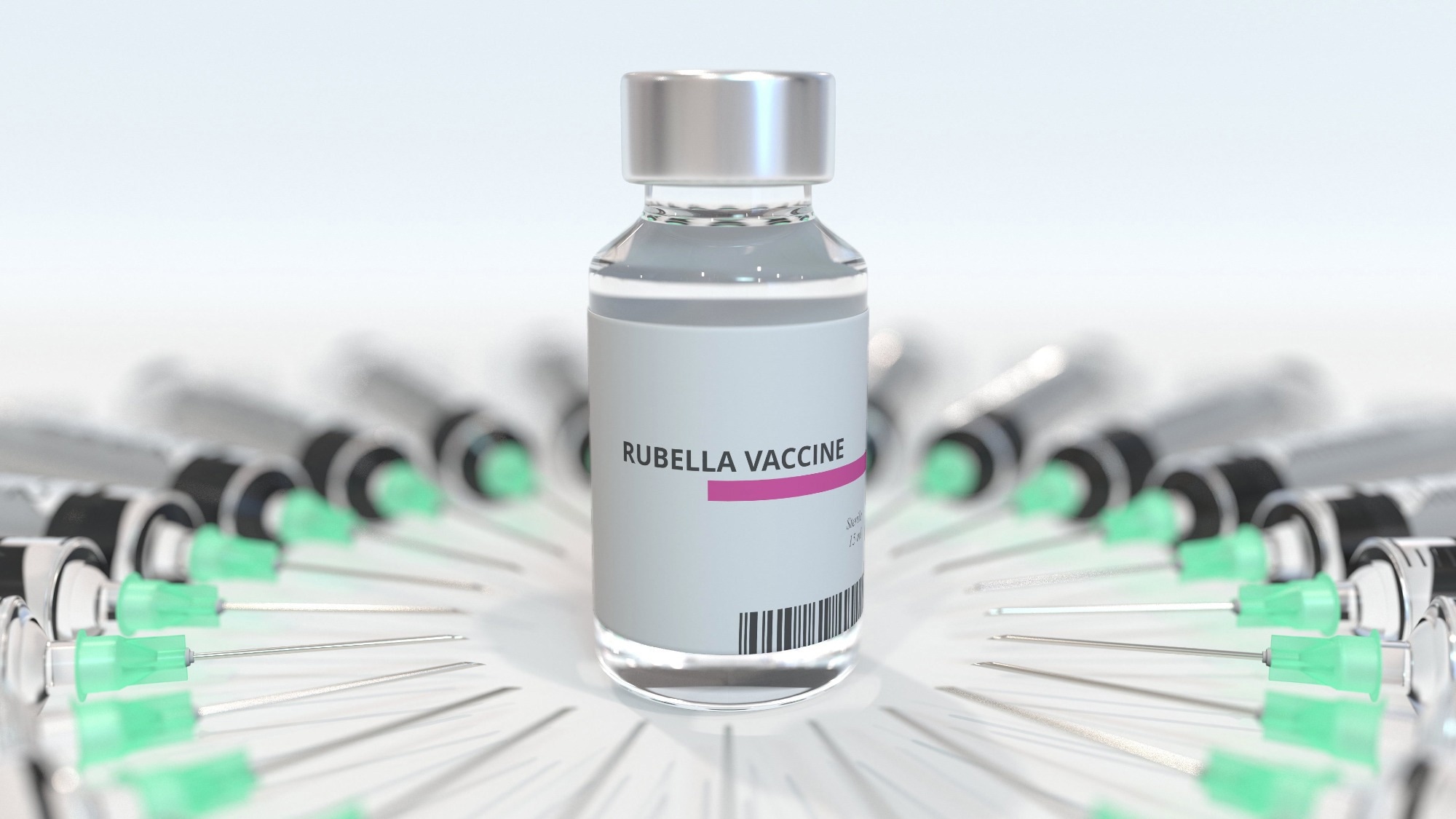In 2013, SEAR countries adopted goals to eliminate measles and control congenital rubella syndrome (CRS) and rubella by 2020. In 2019, these countries announced plans to eliminate rubella and measles by 2023.
The authors discussed the progress in rubella elimination in the SEAR between 2013 and 2021 in the present study.
 Study: Progress Toward Rubella Elimination — World Health Organization South-East Asia Region, 2013–2021. Image Credit: NovikovAleksey/Shutterstock.com
Study: Progress Toward Rubella Elimination — World Health Organization South-East Asia Region, 2013–2021. Image Credit: NovikovAleksey/Shutterstock.com
Vaccination programs for Rubella
The rubella-containing vaccine (RCV) was only available in Bhutan, Maldives, Bangladesh, Thailand, and Sri Lanka before 2013; other SEAR countries introduced the vaccine during 2013-21. Of these, only three countries offered the second dose before 2013; the remaining offered the second between 2013 and 2021.
The regional coverage of RCV was estimated to be 12% in 2013 and 86% in 2021, per the WHO and United Nations International Children’s Emergency Fund (UNICEF).
The highest regional coverage (93%) was recorded in 2019 before the coronavirus disease 2019 (COVID-19) pandemic was started. Supplementary immunization activities (SIAs) were initiated during 2013-21 in all SEAR countries except Sri Lanka, covering over 514 million individuals.
Rubella surveillance
Case-based surveillance of rubella and measles had been implemented by 2021 throughout the SEAR. A laboratory network of measles-rubella was established in the SEAR by 2003, which comprised 58 laboratories, with at least one lab in each country by 2021.
In 2013, only two countries had attained the sensitivity indicator target (≥ two discarded non-measles, non-rubella cases per 100,000 individuals).
The discarded case rate in the region was estimated at 0.91 in 2013 and 1.52 in 2021. Nevertheless, only five countries reached the target by 2021.
CRS surveillance was established in all SEAR countries. Thailand, North Korea, and Sri Lanka report CRS through national integrated disease surveillance, while other countries report through sentinel site surveillance. Seven countries reported CRS in 2021, up from six in 2013.
CRS and Rubella incidence
Rubella cases declined by 80% in the SEAR from 10,434 in 2013 to 2,103 in 2021. The annual incidence of rubella was also 80% lower in 2021 at 1.1 cases per 1,000,000 population than in 2013.
On the other hand, CRS cases increased during 2013-21 due to the enhancement or establishment of CRS surveillance. The genotype of clinical isolates of rubella virus was 2B in Thailand and India, 1J in India, and 1E in Thailand.
A regional verification commission for rubella and measles elimination was set up in 2016 that updated the framework to verify the elimination in 2020. The commission confirmed (in 2020) the elimination of rubella in Sri Lanka and Maldives. Endemic rubella transmission did not occur for over 36 months in three countries (Timor-Leste, North Korea, and Bhutan) awaiting verification.
Conclusions
In sum, SEAR countries achieved substantial progress in eliminating rubella between 2013 and 2021. RCV immunization coverage increased by over 600%, whereas the incidence of rubella was reduced by 80%. The increased CRS incidence in this period indicates surveillance improvements.
Two countries have been verified to eliminate rubella transmission by 2021. Nonetheless, challenges to eliminate rubella prevail in the SEAR.
For instance, vaccination coverage decreased during the COVID-19 pandemic, disrupting surveillance. In 2021, 18% of non-vaccinated infants worldwide were in the SEAR.
Additional challenges include sub-optimal surveillance sensitivity, immunity gaps, funding limitations, and inadequate outbreak preparedness and response. Achieving the goals for rubella elimination in SEAR countries will require intensified measures for implementing interventions in a short span.